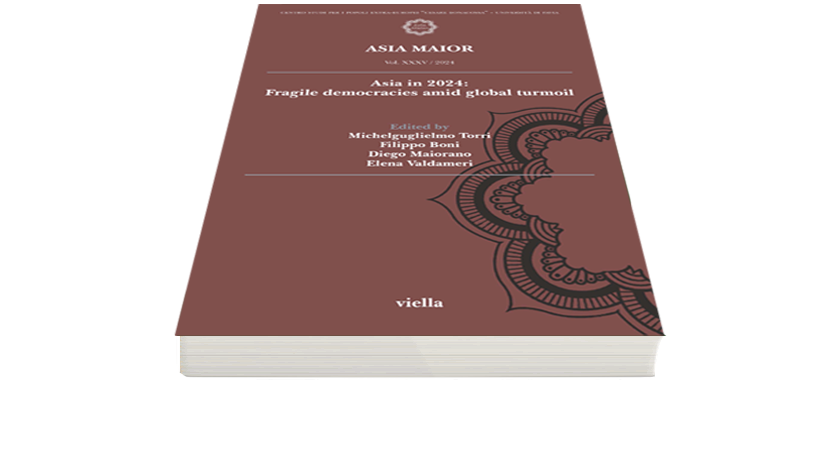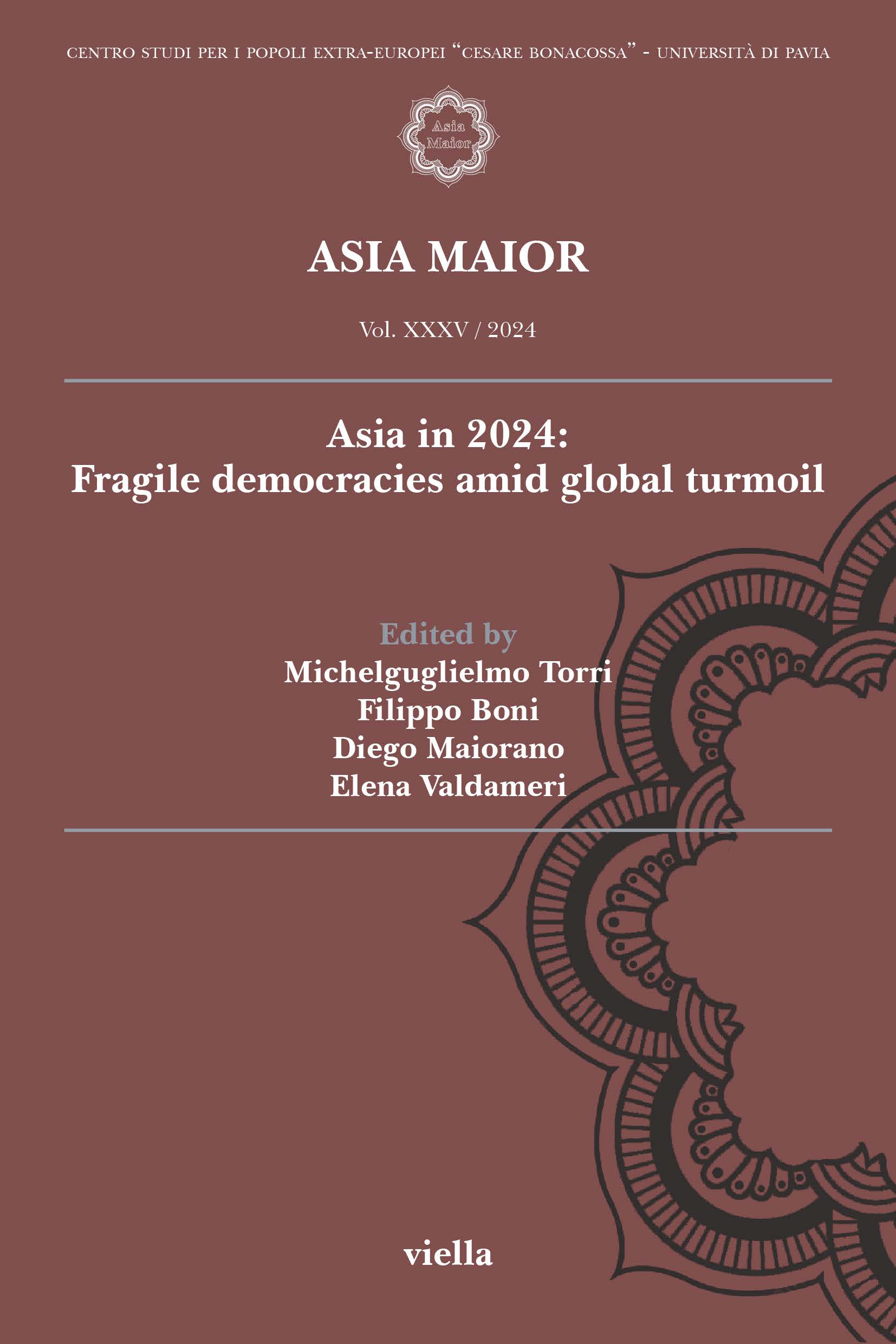Review. Wang Hui’s China in Twentieth Century
Available also in pdf – Download Pdf
Wang Hui (edited by Saul Thomas), China’s Twentieth Century – Revolution, Retreat and the Road to Equality, London and New York, Verso Books, 2016, 361 pp. (ISBN 9781781689066)
Wang Hui is certainly one of the most prominent and well-known scholars in the academic world, and one of the most influential New Left intellectuals in China. Known as the author of The Rise of Modern Chinese Thought published in China in 2004, The End of the Revolution (2011), and The Tibetan Question between East and West (2011), in this new work, Wang Hui displays his vision on Chinese modern history through an in-depth enquiry into the 20th century political and intellectual Chinese history. The analysis does not follow a chronological line. Actually, it follows a dialectic methodology focused on intellectual debates on culture and politics. Aside from the attention to the 20th century’s Chinese political and intellectual history, there is significant focus on the great questions of the current age: the last two chapters (ch. 6 and ch. 7) are indeed dedicated to the transformation of the concept of «equality» and the appendix, which contains an interview for the Chinese journal Foreign Theoretical Trends, deals with the Chinese contemporary debate on globalisation, marketization, and privatisation.
The main object of Wang Hui’s enquiry is the reinvention of intellectual and political categories in the contemporary world. The enquiry is done by using an historical framework. In his analysis he searches for discontinuities and continuities in history, wherein he places the creative elements that occur in the history-building process. He has been able to identify different conceptualisations across time, but he escapes from the superficial argument of a clash between «old and new thinking» (p. 75).
For the western reader, Wang Hui’s reflections on the new meaning of mass-line political project within the current state-party system, and on the determination of new political subjects should be extremely interesting. Who are the masses today? Who currently has the political potential of assuming the creative and innovative function, in face of the blackmailing dynamics of the globalised capitalistic system? Are the current social movements capable of assuming the role of mass-line policy subjects?
In contemporary China, the redefinition of social categories is comparable to the re-definition of the working class between the 19th and 20th century (p. 210). In a similar manner in our current age, those social categories which try to reach an effective political participation and action do not act within the state, because, as far as the state is concerned, they simply do not exist, and state politics does not include them. This is why re-politicisation and a reconstruction of politics of equality are necessary. According to the author, the transformation of the concept of «equality», and the development of different definitions in single historical and geographical contexts, are the true challenges of the 21st century.
The author throws down the gauntlet in the cultural field where contemporary China scholars are involved in the elaboration and re-definition of several concepts: «equality between the city and the country» (p. 251); rethinking the concept of democracy in the global framework of post-political-party policy (p. 164); re-defining the categories that underline the big transformations in contemporary China.
Thus, the originality with respect to his masterful The Rise of Modern Chinese Thought, lies in the fact that, whereas the previous work embraces the years between 1911 and 1978, known as the «century of revolution» or «of extremes», according to Eric Hobsbawm’s periodisation, China’s Twentieth Century not only stretches the timescale as far as 1989, but also makes very meaningful forays into the 21st century.
Hobsbawm is a pivotal point of reference. Wang Hui borrows his periodisation of Western European and Russian history known as «the short 20th century» (1914 to 1991), while inserting in this framework a specific point of view on Chinese history. His periodisation places the beginning of China’s revolutionary age at the same time as the beginning of the Chinese People’s War of Liberation: the birth of the Chinese «people» (人民) as a political subject, he states, «would not have been possible without the people’s war … beginning in 1927» (p. 137).
His starting point lies on a paradox, a paradox of «continuity» which sheds light on the singularity of China’s history in comparison with other contexts. The formation of the nation-state in Europe brought about territorial fragmentations. In early 20th century China, on the contrary, the fall of the Qing empire and the formation of the nation-state did not result in fragmentation, but rather reinforced the concept of sovereignty, as discussed by Kang Youwei and other contemporary intellectuals who fed the cultural debate at the time in which the Chinese Republic was born: «While the Habsburg, Hohenzollern, Romanov and Ottoman Empires were disintegrating one after the other, the various old and new political forces in China were all predicating their varied political goals upon the unification of the state» (p. 14).
At the end of the «short» 20th century, this paradox repeats itself again, at the end of the revolution, and post revolution. While in the west, at the end of the Cold War, socialist countries collapsed, China not only upheld the integrity of its political structure, population, and size, but was also able, to a certain extent, to make a definite shift from a socialist economy to a market economy while maintaining the structure of the socialist state. Here, Wang Hui makes a clear reference to the Tian’anmen mass movement and to its political management (1989). This is a recurring topic in his works. Although it is not dealt with at length here, it is nevertheless present in the lines of the author’s theoretical discourse.
The other paradox is a significant discontinuity between the revolutionary and post-revolutionary eras of the «long century» in the state-party’s attitude towards the working class. Whereas during Mao’s era workers were considered the leading political class, the one that epitomised the creative potential of revolutionary politics, «today, the new workers far exceed China’s 20th century working class in number and scale, yet as a group they have almost no position within the realm of politics or culture» (p. 188).
The book is organised into seven chapters. The text has a rich body of footnotes providing important bibliographic indications and references to primary sources. An index is provided and it represents an indispensable tool for quick consultation. The first chapter concentrates on the political process of state-building that brought about the Chinese transition from empire to nation-state. Beginning from the paradox of continuity outlined above, Wang Hui underlines how 20th century’s China saw the rise of new political categories. The emergence of a conceptualisation of the «Chinese people» as a political subject played a central role. It is a complex category that integrates citizens who are politically, ethnically, linguistically, socially accomplished, and active in the creative process of the new state. Thus, the revolutionary state, a one-party-government state, acts as integrator of complex political forces and is the mobiliser of society. Nowadays, the crisis of politics and history is marked by the shift from a concept of state as political integrator to a non-political bureaucratic system. The question of this shift in the conceptualisation of the state is a key argument in Wang Hui’s theoretical definition of «depoliticisation», a process that, according to the author, characterises contemporary China and the crisis of the state-party’s capacity of political representation (p. 153).
The second chapter concentrates on cultural aspects. The author reflects at length on the debate concerning the historical significance of the May 4th intellectual and political movement. He interprets the movement as a point of fracture, an innovative and creative event projected towards a new era. Through an original analysis of two of the main publications of the first decade of the 20th century, Eastern Miscellany and New Youth as well as of the works of the most representative intellectuals of the time – Liang Qichao (1873-1929), Li Dazhao (1888-1927), Du Yaquan (1873-1933), Qian Zhixiu (1883-1947), Chen Duxiu (1879-1942), Liang Shuming (1893-1988), and Sun Yatsen (1866-1925) – he brings to light the process of intellectual confrontation and debate that brought about political innovation, and interrupted the continuity with the preceding historical paradigm (p. 55).
The third chapter stems from an interview with Zhang Xiang, starting from an analysis on the Korean war. It unveils historical facts that are part of different narratives on that war and that are rarely considered all together. The historical information he provides comes from primary sources and not easily accessible documents: letters, memoirs, diplomatic documentations from China, America, Korea and Japan. Great importance is given to a re-reading of texts by Mao Zedong, from his major essays on the interpretation of history, political theory, and strategy, to the transcripts of his speeches and statements as found in the Mao Zedong Selected Works Collection of 1965, 1977, and 1999. The Korean War is interpreted not as a mere military enterprise, but as an event of political significance for the state-building process, equivalent to the anti-Japanese resistance.
The fourth chapter examines the current world-wide depoliticisation process. He singles out three elements of this ongoing process: 1. a crisis in the representation of political parties; 2. the transformation of the role of media from performing a public service to becoming instruments of politics; 3. the crisis of law, which becomes the expression of special interest groups. The depoliticisation process enacted after 1989 brought about a shift from a concept of class, as a political subject, to its «objectification» bound to a social stratum externally defined as an «objective structure without any internal political capacity» (p.163). The task is reconstructing new forms of representation, and identifying creative and innovative political forces for the post-party politics of the future.
The focus of the last three chapters is on contemporary issues and on the changes of concepts and definitions. The fifth chapter is dedicated to the transformation of Chinese labour in its integration within the new international globalisation framework. The sixth and seventh chapters focus on equality. Wang explores historically the concept of equality in the contemporary global world, reaching the conclusion that it is necessary to analyse «equality» on a global scale, not only within the nation-state. Talking about the new working class and the equality issue, he introduces the vast issue of migrations in the 21st century, and the new subjectivities that are being created within them. «A labor force that is able to move, doesn’t move aimlessly» (p.241). The vast migrations of working people, on a national and international scale, are constructing a generative new framework of «class», «equality» and «labour» concepts. In other words, people on the move in massive migration waves are, at the same time, symbols and creative engines of the historical event.
As a conclusion to this review, what is outstanding about this book is the complexity of thought that the author displays, and his profound analysis that extends both chronologically and spatially through a great wealth of information. We are used to his historical and cultural approach, which stems from a traditional Chinese one, where there were no boundaries between different disciplines and where the scholar played the role of historian, philosopher, politician and in some cases also poet and painter. If I may point out one issue that comes to my mind as a reader of the book, it would be the fact that, inasmuch as it is a collection of independent articles and interviews, some concepts are repeated and are therefore difficult to follow and reconstruct. But this is a very stimulating and highly recommended work that provides useful insight and incentive to the research on contemporary China for all areas of research.









































